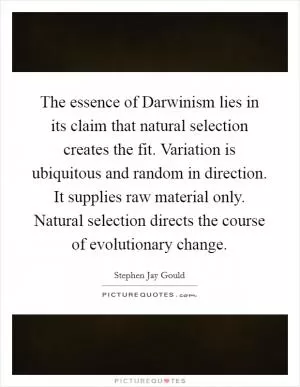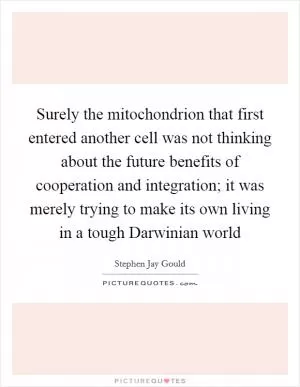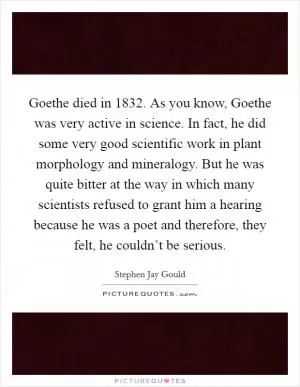No one-liner can ever be optimal

No one-liner can ever be optimal
Stephen Jay Gould, a renowned paleontologist, evolutionary biologist, and science historian, was known for his insightful and thought-provoking writings on a wide range of topics related to evolution, natural history, and the philosophy of science. One of his most famous quotes is, "No one-liner can ever be optimal," which encapsulates his belief that complex ideas and concepts cannot be adequately conveyed in a single, simplistic statement.Gould's assertion that no one-liner can ever be optimal reflects his deep understanding of the complexity and nuance of the natural world. In his work, Gould often delved into the intricacies of evolutionary theory, challenging traditional views and offering new perspectives on how life has evolved over millions of years. He believed that reducing these complex ideas to simple, catchy slogans or soundbites would do a disservice to the richness and depth of the subject matter.
Furthermore, Gould's emphasis on the limitations of one-liners can also be seen as a critique of reductionism in science. Reductionism is the philosophical belief that complex phenomena can be explained by reducing them to simpler, more fundamental components. Gould argued that this approach oversimplifies the natural world and fails to capture the full complexity of biological systems and processes.
Instead, Gould advocated for a more nuanced and holistic approach to understanding the natural world. He believed that science should embrace complexity and uncertainty, rather than seeking to reduce everything to simple, easily digestible explanations. By exploring the intricacies of evolution, Gould sought to challenge conventional wisdom and encourage a more nuanced understanding of the natural world.












 Friendship Quotes
Friendship Quotes Love Quotes
Love Quotes Life Quotes
Life Quotes Funny Quotes
Funny Quotes Motivational Quotes
Motivational Quotes Inspirational Quotes
Inspirational Quotes